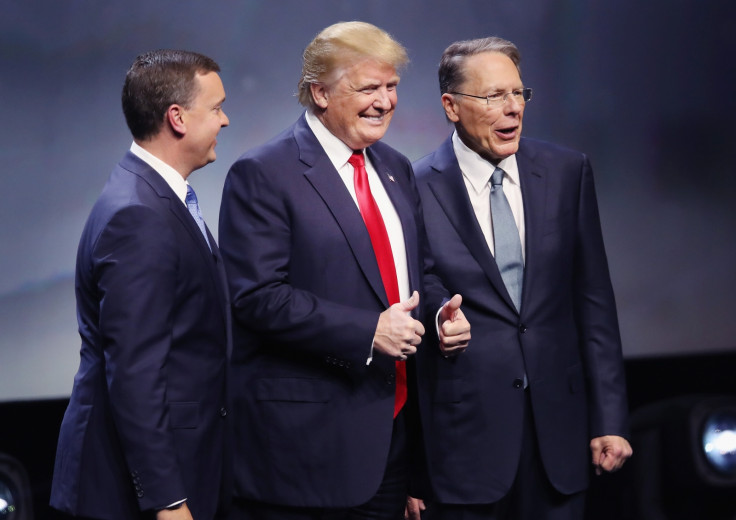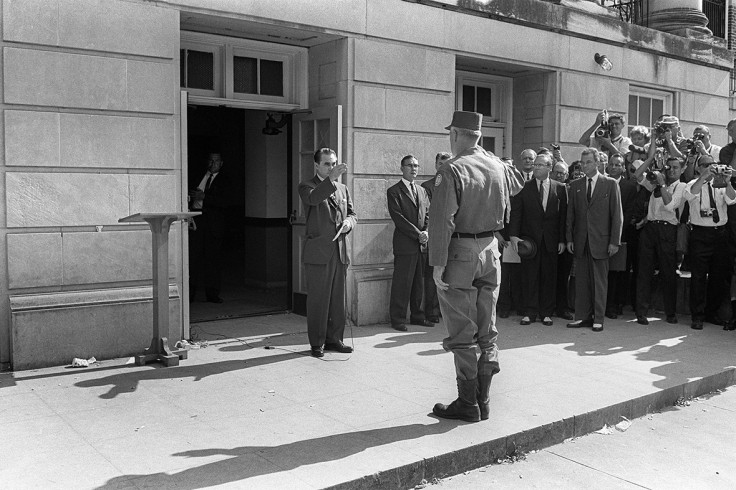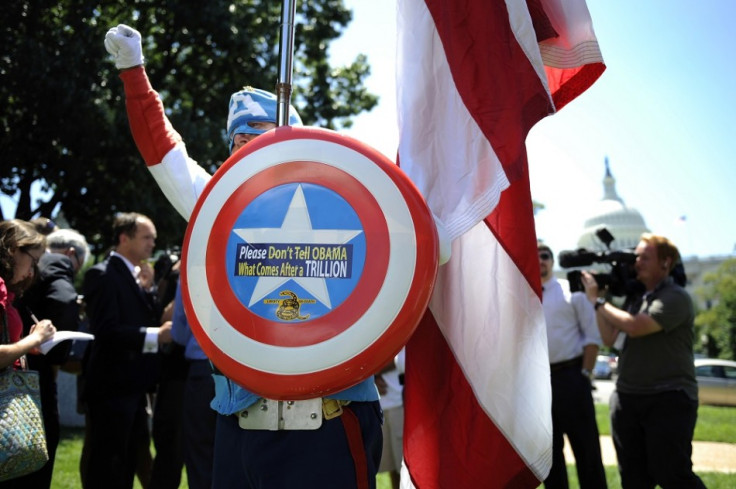Generation Trump: How Donald Trump became the populist leader the Tea Party never had

Given his proclivity for making outrageous statements that offend large proportions of the American public – if not the world – it is not a huge surprise that Donald Trump hogs the headlines. But the anti-immigration, contrarian, radical right wing message that the brash billionaire presidential candidate has made his own is no new phenomenon in American politics.
In 1968, George Wallace ran for president on a pro-segregation ticket, with outspoken attacks on liberals and minorities, while in 1996 conservative commentator Pat Buchanan won the New Hampshire primary on a platform of isolationism and economic nationalism that plenty see as a fore-runner of Trump's own stance (even if Trump in 1999 dismissed Buchanan as only being capable of attracting 'wackos' to vote for him).
More recently it has been the Tea Party, the conservative movement that first arose in the late 2000s and peaked in the early years of Barack Obama's first term as president. The movement was born out of a dissatisfaction with mainstream Republicans such as Mitt Romney, who ran for president in 2012, and known for its radical libertarian, anti-abortion and pro-gun ownership stances – as well as its mainly white, born-again Christian members.
"The Tea Party made it possible within the Republican Party for certain things to be said, for you to take really radical right positions. The thing is that the Tea Party never had a leader. It was a rag bag collection of grassroots movements or figures who did not have the standing to emerge as leader. Trump, in a way, is the leader the Tea Party never had," said Duncan McDonnell of Griffith University in Brisbane, Australia.
The Tea Party has not rushed to accept Trump. For all his anti-immigration populism, Trump is a brash New Yorker with a colourful personal life who has clashed openly and bitterly with the Tea Party's favoured candidate, Ted Cruz. Since Tea Party stalwart Sarah Pain endorsed Trump earlier this year, she has been noticeably absent from his campaign. Trump's economic protectionism rankles Tea Party conservatives who support free trade.
McDonnell, who co-authored the book Populists in Power in 2015, sees parallels between the rise of Trump in America and right wing parties in Europe, including Holland, Austria and France. In these cases, populist leaders have capitalised on dissatisfaction with politics as usual while demonising the other, be that immigrants, Muslims or other minorities.

Faced with economic insecurity and debt, national governments – dominated by traditional parties – have been unable to fight back. Where in the past they could spend on welfare, infrastructure and job creation, they have been squeezed. Meanwhile, the similarities in policies between centre right and centre left – particularly over the economy – has convinced voters that mainstream parties are "all the same". Enter the populists.
"I am convinced that people are more dissatisfied with mainstream politicians and parties than they have been in living memory. People go looking for other alternatives and the one thing about populists is that they still promise people that voting can actually change something – that democracy can be saved somehow. Populists are saying: 'We can make democracy work for you', and that is a very powerful message," said Griffith.
And it is not just on the right that populism has seen a surge. Spain and Greece both saw socialist governments elected after the financial crisis (both with little success) while in the UK the election of Jeremy Corbyn as Labour leader came amidst unprecedented turnout from young Britons fed up with the mainstream politics of the Labour and Conservative parties.
In the US, the anti-Wall Street message of Bernie Sanders has proved equally addictive for a new generation of young Americans after eight years of Obama, whose two terms have seen him constantly hampered by a Republican-controlled Congress and Senate. There is a feeling among many young liberal Americans that politics-as-usual just isn't working, and that Hillary Clinton, an establishment figure if there ever was one, will not change that.
"For a lot of millennials, this is their first campaign. If you're younger than 21 or 22 years old in America you have never seen Congress work effectively. They don't have any frame of reference of how government used to be. That has helped energise them and got them out to vote for Sanders," said Chuck McCutcheon, author of Doubletalk: The Language, Code and Jargon of a Presidential Election.
As for Trump, his supporters have been swayed by his reluctance to fight a traditional campaign. He has shunned both mainstream and right wing news outlets, refused to employ a pollster (until recently) and argued that by funding his campaign using his own sizeable fortune means that he "cannot be bought" – implying, of course, that his rivals can.

Meanwhile at a time when most politicians are terrified of upsetting anyone lest they be quickly shamed in the social media echo chamber, Trump speaks his mind. Not just in attacking women or minorities, but in his language in general: where mainstream politicians are quick to adopt the lexicon and lingo of politics, Trump is seen as a straight-shooter who says what he means.
"I think that there are people who do see Trump as refreshing as he doesn't speak in the normal, euphemistic language that a lot of politicians use. He keeps things very direct. He doesn't use a dog whistle to communicate to his voters, he uses a police whistle," said McCutcheon.
In the end, few believe that Trump will be able to beat Clinton. His rock-bottom approval ratings amongst women and minorities mean that he would be relying exclusively on his core white, non-college-educated base, which is not enough to win the US presidency. Even mainstream Republicans may struggle to back Trump, especially those in their own tight races for Senate and Congressional seats in November.
But even if the world stops listening to Trump after November, his rhetoric has already changed America, said McDonnell. He recalls the right wing campaign of Pauline Hanson, leader of the far right One Nation party in Australia, who stood on an anti-indigenous rights ticket in the 1990s. Hanson, and her movement, quickly faded, but echoes of her views can be seen in Australian policy towards immigration – and now refugees – even today.
"Electoral success isn't the only way that populists change the countries in which emerge in. It is a little bit like when you throw a stone into the water: the stone may sink but you get ripples," he said. "Without doubt Trump has changed the way that you can talk about certain issues in the US. He has changed the way that you can talk about immigration and Muslims."
Read more in our series on Generation Trump.
© Copyright IBTimes 2025. All rights reserved.






















